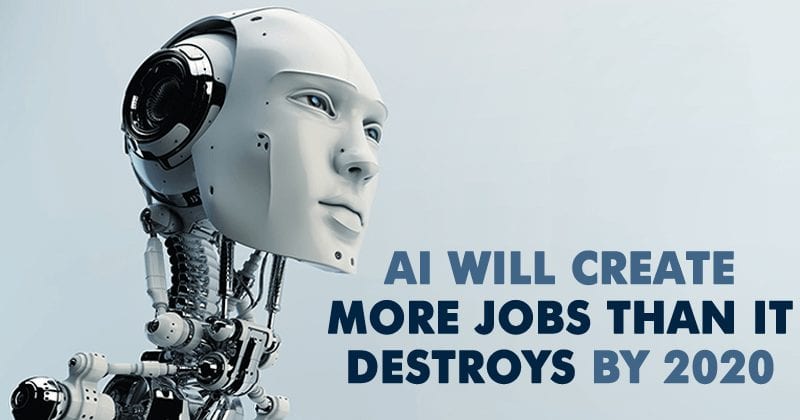Although various jobs will disappear and others will be replaced by robots, the prospects for the next few years are not as negative as they seem. From the consulting firm Gartner show that, while 1.8 million jobs will be destroyed by 2020, their study also reveals that job creation will go at a faster pace, which will lead to the emergence of 2.3 million new jobs all over the world. In the stretch from 2020 to 2025, Artificial Intelligence will create another two million jobs more by itself. As expected, the swings and changes in the creation and destruction of employment due to the penetration of automation in the labour market depend very much on the industry of which we speak. Manufacturing or construction will be sectors that will experience a significant loss of workers, while land such as education, health or the public sector will experience a boom. Social skills, digital literacy and more technical and specialized profiles will be essential to get a job. Svetlana Sicular, vice president of research at Gartner, highlights the route that will most likely follow the implementation of Artificial Intelligence: “Significant innovations are usually associated with a transition period of temporary loss of employment, followed by a recovery and changes of models in the business.”
Non-routine work, for humans
It is important that managers calculate the creation and destruction of employment in relation to their investments in AI, which will determine the transformation of collaboration environments and decision making. The new model will require a revolution in corporate culture, training and constant training for workers and investment in innovation. From Gartner, they emphasize that many medium and low-level positions, considered low qualifications, will be eliminated and replaced by new highly qualified professions. Taking advantage of cutting-edge technologies, retailers will use intelligent process automation to identify, optimize and automate the repetitive and labour-intensive activities currently carried out by humans, reducing labour costs through efficiency from headquarters to distribution centres and stores. At the moment, it seems that traditional sales advisors are complicated, which inspire more confidence in clients when they demand information in specialized areas such as pharmacy or cosmetics. “Automation will lead to cost savings, while eliminating friction in value chains will further increase revenues, for example, in the optimization of supply chains and market launch activities,” said Robert Hetu, director of research of Gartner, around the manufacturing industry. Instead of simply automating tasks, in the tertiary sector, the reduction of AI costs and the improvement of productivity can be reinvested to reinvent themselves and explore new business model opportunities. So, what do you think about this analysis? Simply share all your views and thoughts in the comment section below.


